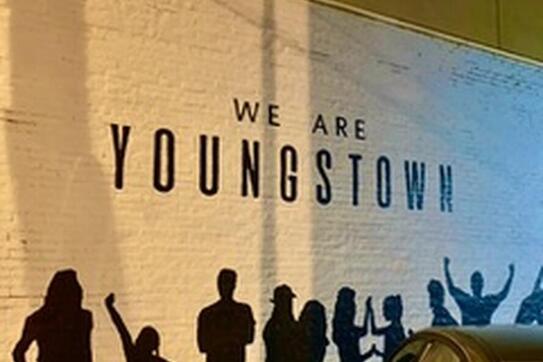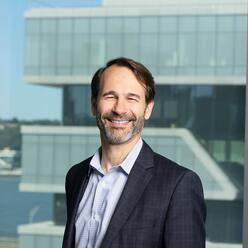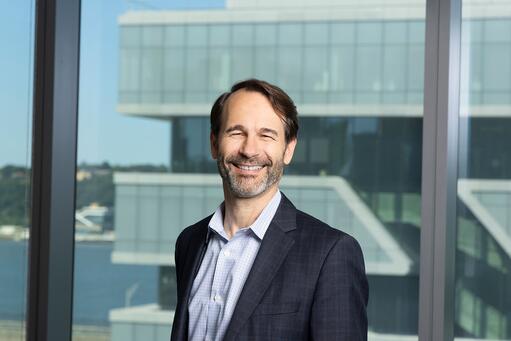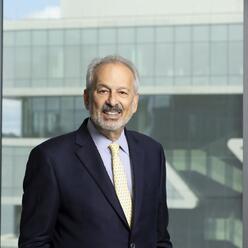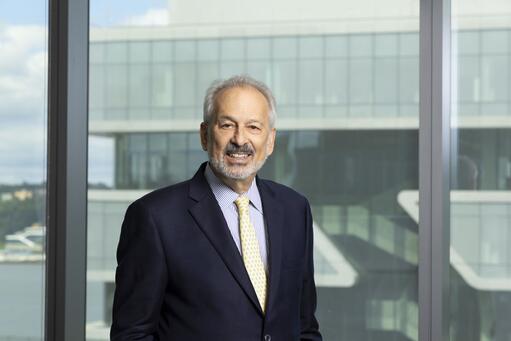Throughout its rich and ragged history, Youngstown has had many names. Most have been given by those observing it from the outside.
A 2013 book about the Mahoning Valley mob, dubbed it “Crimetown USA,” and a podcast charting Youngstown's felonious past, refers to it as “Crooked City.” On history syllabuses across America, it's presented as the quintessential collapsed steel capital: a community ruined by industrialization, the heartland of political disenfranchisement, and fertile ground for populism.
Youngstown might be all of those things, but it can't be reduced to any one of them. Its identity is far more complex than a catchphrase or nickname, and that is why it served as an ideal place for Columbia Business School students — aspiring to be business leaders — to spend time confronting American divides, contemplating ways in which these might be bridged, and grappling with the central question of what role corporations, the public sector, and individuals might play in doing so. For four days in November, students in the Bridging the American Divides course, taught by Professors Bruce Usher and Todd Jick, traveled to Youngstown to visit the community firsthand.

Students in the Bridging the American Divides course, with Professors Bruce Usher and Todd Jick.
One thing that's unequivocally true about Youngstown is that it's transformed dramatically over the last half century. Many houses across its sprawling and once vibrant, but now sparsely populated, neighborhoods have fallen into disrepair. The local media corp is a skeleton crew of what it once was, and although voter turnout in the 2022 midterm elections was higher than in previous years, community organizers and local business leaders are fearful of the bitter side effects of lackluster civic engagement. Even Mayor Jamael Tito Brown acknowledged this while speaking to us over dinner one night.
Ever since Black Monday, the day in September 1977 when news broke of the first closure of a major steel mill in the region, people have been turning their backs on Youngstown for pastures they hope to prove greener: Cleveland, Pittsburgh, and further afield. And thus, Youngstown's population has declined by some sixty percent over the past five decades.
But those statistics also don't adequately sum up what the city perched on the banks of the Mahoning River is all about. On the Friday evening in early November, when a group of 36 CBS students descended on the recently renovated Penguin City Brewing Company, to have drinks and eat sandwiches from a local food truck, the space was abuzz: friends unwinding ahead of the weekend, colleagues debriefing the working week, and perfect strangers punting on what might happen on election Monday, just three days away.
The next morning, Ian Beniston, the executive director of the Youngstown Neighborhood Development Corporation (YNDC) — a nonprofit dedicated to improving the quality of life in the city by building and encouraging investment to revitalize neighborhoods — spent almost two hours telling students about the greenshoots he's observing: cafes and shops that are planning to open, grassroot efforts to revive certain streets, and a slew of grants and funds that are trickling into Youngstown's coffers. Much of this, Ian and his team can take credit for.
A little over ten miles north of Youngstown, Ultimum Cells, the joint venture between LG Energy Solutions and General Motors, has started producing battery cells for electric vehicles. From 1966 until 2019, the neighboring Lordstown Assembly was a massive production site for General Motors. As we walked around the new Ultium facility on Monday morning, and heard VP of operations, Tom Gallagher, speak of the work being done, it became clear that the brand new factory is emblematic of Ohio's appetite to embrace new industries and technologies as a means of remaining globally competitive, despite undeniable headwinds.
"Anyone who claims to know the absolute truth is actually part of the problem.”
Almost all the people students spoke to in Youngstown — from members of the Fifth Avenue Community Church congregation, to individuals in nonprofit Flying High's addiction recovery program — made it clear that they are looking to the future while keeping a tentative eye in the rear-view mirror. Some are still mourning the loss of an industry, and the identities that necessarily go with that, but many are optimistic and enthusiastic about the opportunities ahead. A policeman patrolling the high street on a Sunday afternoon told us that he'd never seriously considered leaving. “To me,” he said, “this is just home.”
People acknowledge the divides that shape the city — socioeconomic, race, and education, to name but a few— but they aren't paralyzed by the plight of Youngstown's past, the way that some accounts of the city's history might suggest they would be.
And so, as we students made our way to the airport and back to New York City — and as we digested our impressions of a city unlike any other most of us had ever spent time in — many of us couldn't help but consider a divide that might not have occurred to us until this moment; the divide between expectation and experience, between what we thought we knew about Youngstown and what we actually found the city to be and represent.
“The most important thing I learned on the trip,” said Tomer Tal, a student from Israel, and part of the class of 2023, “is that reality is complex. Anyone who claims to know the absolute truth is actually part of the problem.” And to that end, his advice to students who head to Youngstown in future years would be to keep an open mind and to acknowledge the things you don't know. “Try to leave space for doubt,” Tomer said, “especially when you have a strong opinion about something.”
